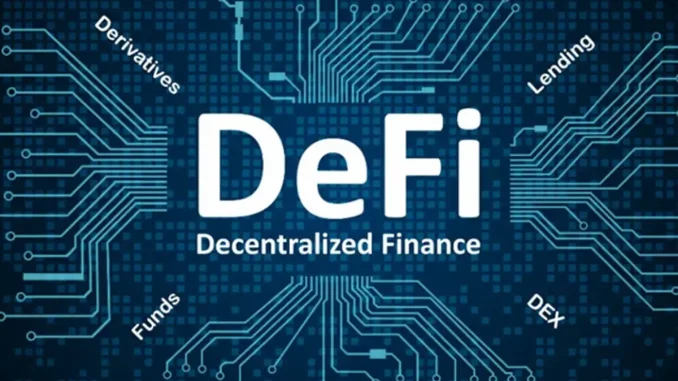
Fintech expert Sergey Kondratenko notes that DeFi faces unique regulatory challenges, especially in light of growing attention to global economic sanctions and Anti-Money Laundering (AML) regulations. Integrating AML methods and adhering to sanction policies remain critical issues for DeFi platforms as they strive to legitimise their operations and expand their user base.
The original philosophy of anonymity in DeFi is now under pressure. Such an approach to anonymity may need to be reconsidered if presented with a stark choice: “either-or”. On one side lies the desire to maintain confidentiality. On the other side lies the potential for abuse of DeFi to circumvent sanctions and engage in illegal financial operations, fraud, money laundering, and terrorism financing.
“Blockchain can technically guarantee a higher level of transparency than the traditional banking system. It is impossible to falsify or retrospectively alter a blockchain transaction,” comments Sergey Kondratenko.
If the issue of integration into the global financial system is raised, then in the context of the universal global fight against money laundering and financial crimes, DeFi can offer much more transparency with proper adaptation.
Growing Interest in DeFi Amid Sanctions and Regulatory Restrictions
The anonymous nature of DeFi makes it attractive for money laundering, illegal financial operations, and circumventing sanctions, among other things.
“Cryptocurrencies provide ease and speed in moving large sums of money, which can be accessed from anywhere in the world,” reminds Sergey Kondratenko.
Alongside this, the tools of decentralised finance are often used to circumvent sanctions due to their ability to provide financial services without centralised control. This allows users to conduct transactions anonymously, complicating the tracking and blocking of funds by regulators.
Using DeFi for such purposes undermines the effectiveness of international economic sanctions designed to prevent undesirable political and economic actions. In response, international organisations such as the FATF are developing guidelines and measures to regulate the DeFi sector to prevent its use for circumventing sanctions. In 2019, the Financial Action Task Force (FATF) expanded its measures to combat money laundering and terrorism financing, including the virtual asset sector and virtual asset service providers (VASPs).
Sergey Kondratenko: Challenges and Opportunities for DeFi Under Global Economic Sanctions
To reduce systemic risks to the global financial system, it is necessary to solve the problem of abusing DeFi to circumvent restrictions and financial crimes, track transactions, and verify financial activity.
Adopted by the European Union in July 2018, the Fifth EU Money Laundering Directive (AMLD5) extends requirements for transparency and measures to combat financial crimes to virtual assets and their intermediaries, including DeFi platforms.
According to the directive, operators of virtual currencies must implement strict KYC and AML procedures, conduct thorough checks of clients, keep records of financial transactions, and report suspicious activities to competent authorities.
Sergey Kondratenko notes that to comply with the directive’s requirements, DeFi platforms will need to find innovative solutions in the area of regulatory compliance that simultaneously provide transparency and respect user privacy.
Also, in July 2023, the US Senate approved amendments to the NDAA law aimed at strengthening control over crypto mixers, anonymous coins, and organisations working in the digital asset sector. Additionally, US authorities proposed a bill requiring DeFi protocols to implement strict anti-money laundering (AML) standards. In Europe, committees of the European Parliament on economic and internal affairs also supported a bill that extends AML requirements to DAOs and other Web3 platforms. According to this bill, all transactions over 1000 euros must be subject to mandatory monitoring.
Given all this, despite the philosophy of anonymity, DeFi platforms are exploring ways to integrate AML principles into their operations.
The technological transparency of blockchain can be used to develop more reliable tools for combating money laundering and compliance requirements that track and analyse transactions more effectively than traditional systems.
Sergey Kondratenko notes that DeFi can play a key role in combating money laundering and preventing illegal financial transactions on a global scale.
Using blockchain transparency, DeFi platforms can offer new ways to monitor and protect financial transactions. Smart contracts, for example, can be programmed to reject transactions that do not meet specific legal criteria, effectively automating compliance and reducing the number of human errors.
Prospects for Integrating DeFi into Traditional Financial Infrastructure Under Sanctions – Sergey Kondratenko
Integrating DeFi into the traditional financial system opens up significant opportunities and serious challenges. For DeFi to fully comply with AML/CFT requirements, it needs to overcome several obstacles:
Enhanced KYC Measures. DeFi platforms need to develop mechanisms that ensure adequate verification of all users while adhering to the principles of decentralisation.
Interaction with Regulatory Authorities. Ongoing dialogue with regulatory authorities will be crucial for aligning DeFi developments with the existing legal base and potentially influencing the creation of new rules that recognise the unique aspects of decentralised systems.
Standardisation of Protocols. Establishing standard protocols across different platforms can help ensure consistent application of compliance measures, simplifying integration with traditional financial systems.
As DeFi continues to grow, these efforts will be crucial for defining its place in the broader financial landscape, especially in regions that are strictly regulated and controlled for compliance with sanctions.
Sergey Kondratenko added that in conditions of tightening global sanctions and regulatory frameworks, a technology-oriented DeFi approach may be more effective since more traditional financial systems often face bureaucratic slowness, making them less adaptable to rapidly changing international rules.









